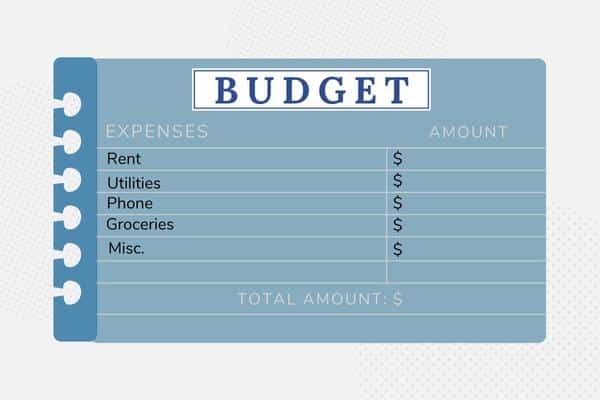As you think about managing your money, you likely have a general sense that you should be following a budget and working on saving. However, have you stopped to really consider what your short-term and long-term financial goals are and how to attain them? This big picture view is what financial planning is about, along with ensuring you’re making smart financial decisions along the way.
What’s Involved in Financial Planning?
The term financial planning is often thought of as developing straightforward retirement planning projections. Given this, many younger individuals delay financial planning because they think retirement is far off in the future. However, there are two key things to know:
- Financial planning covers far more than just retirement planning.
- Planning today improves your finances now, and longer-term.
There’s a lot involved in your finances such as investments, employment, housing, taxes, family protection, charitable giving, and so much more. It can be challenging to understand what each entails let alone considering the totality of your finances.
Quality financial planning helps you to evaluate critical areas of your finances, often including topics you might not even think about. It also gives you a roadmap, knowing what actions to take. Examples might include:
- Understanding how financial decisions impact your goals and life decisions.
- Knowing how much to save each month.
- Learning how to lower your taxes.
- Fully utilizing your employment benefits.
- Evaluating a new home.
- Balancing college and retirement savings.
- Making sure you have enough disability and life insurance.
- Knowing you have key documents in place.
Building Your Financial House
A key aspect of financial planning is making sure that the various elements of your finances intertwine well. For example, you might get advice from an accountant, an attorney, and an insurance agent. However, do you know how the various pieces of advice affect each other?
Building your financial future is somewhat akin to building a house. Your finances require a strong architecture. A house needs a solid structure, quality systems, protections, and character to make it yours. Your finances need the same.
- Your assets and net worth create a solid foundation.
- The interplay of your financial decisions needs to work together in a supportive system.
- Proper titling of assets, insurance, and essential documents offer security.
- A financial plan makes sure that your decisions directly support your personal goals.
How Do You Create a Plan
Given that there’s a lot to know about your finances, it’s best to work with a qualified financial advisor, such as a Certified Financial PlannerTM. Some robo-advisor tools can also help, but the quality of the output is only as good as the quality and knowledge of the input. As an example, if you’re not comfortable preparing your own tax return, you might not want to chance entering all of your finances into a robo-advisor tool.
Your plan should include information about all aspects of your finances such as your spending, your income, your employment and benefits, taxes, your home, etc. The details of your finances should overlay with your goals, both short and longer-term. Finally, everything should be entered and evaluated through sophisticated planning software to calculate:
- Financial projections over time.
- Strategies to achieve your goals (i.e., how much to save or can you afford a new house).
- The impact of various financial decisions or life events (i.e., funding college or retiring early).
The Interrelation of Financial Planning and Investments
Financial planning is an important tool toward investment decision-making. Your planning helps to identify how your money should be invested relative to your goals, how much growth you need, and what cash needs you might have for short-term goals or supplemental income needs.
For example, if you’re buying a home, your downpayment monies should be secure and not invested in the market, but your other savings might need to be aggressive in support of your longer-term goals.
How Often Should Your Planning Be Updated?
Financial planning shouldn’t be a static endeavor. Your life and goals change due to a variety of events such as job changes, marriage, having a child, moving, investment performance, family needs, etc. As such, your planning shouldn’t be a one and done. Ideally, you revisit comprehensive planning at least annually, along with reviews every quarter to evaluate progress on implementing your goals. Doing so helps you to stay on a solid path versus having to play catch-up a year or more later.
SageVest embraces a strong focus on financial planning as part of our broader wealth management services. We take a detailed approach that examines the impacts of varying life decisions as well as fluctuations in the market. Our planning efforts help you to frame life decisions and chart you on a path toward success. Furthermore, our proactive approach helps to seize opportunities. Please contact us to learn more.




